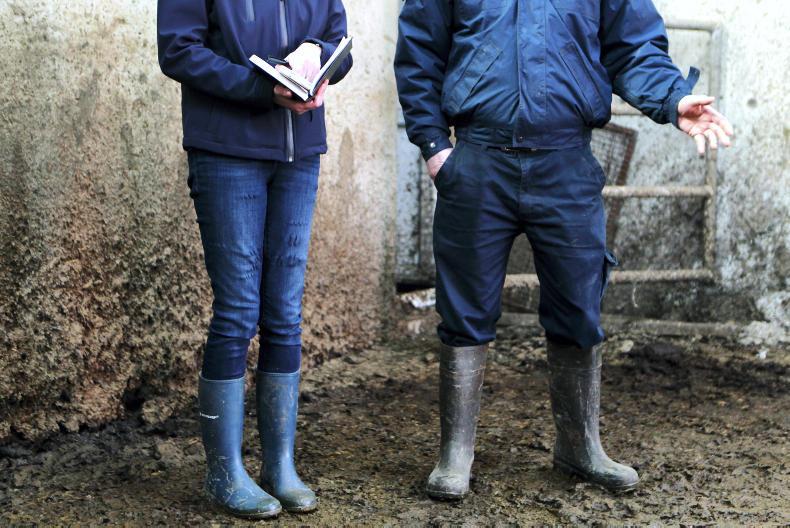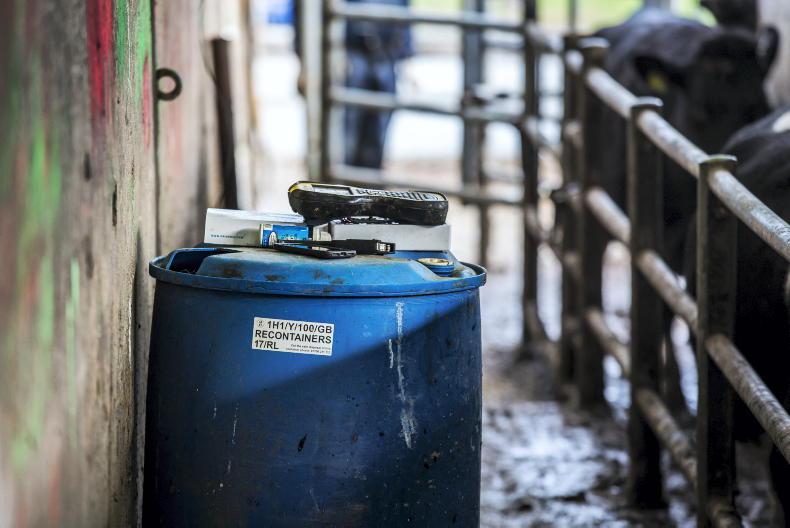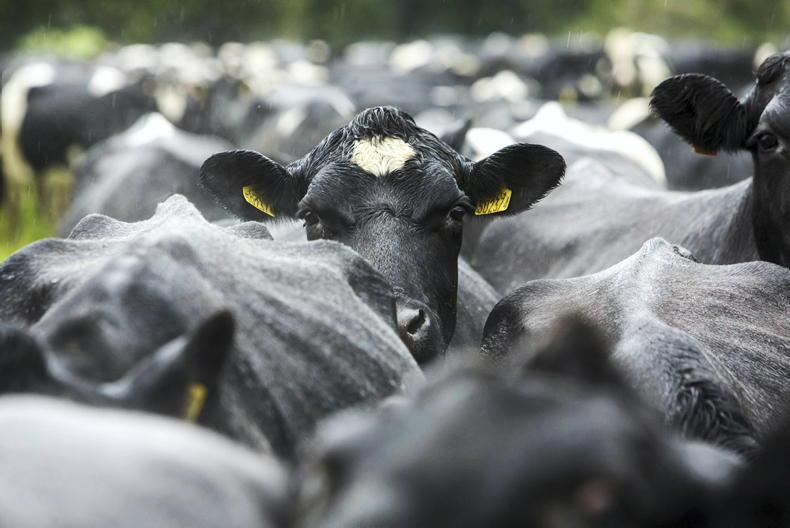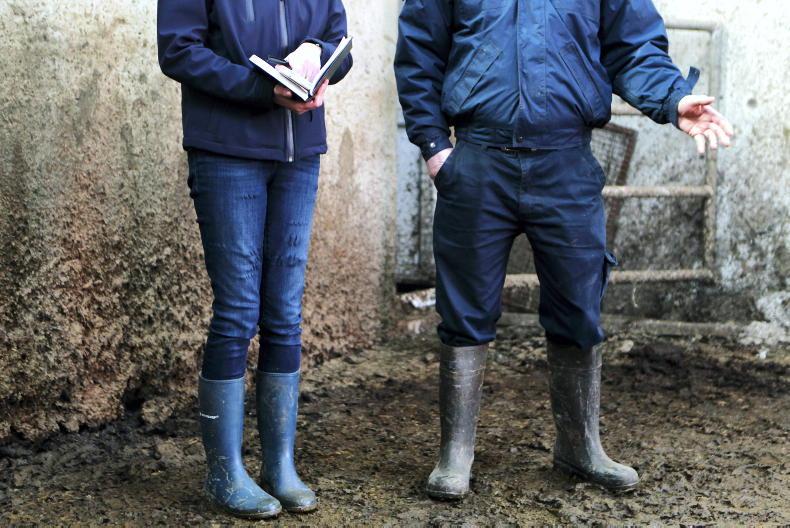Up to 6,500 farm inspections will take place every year, according to the new River Basin Management Plan 2018-2021, launched by the Department of Housing on 17 April.
Agriculture accounts for 53% of the 1,460 water bodies that are classified ''at risk'' but it also makes up two-thirds of the land use in Ireland.
The inspections will be undertaken by the Department of Agriculture and local authority inspectors, trained by the Department of Agriculture.
Inspections
Farmers who have never or rarely been inspected, will be targeted for inspections, and nitrates inspections will be increasingly focused on areas where water testing has highlighted a problem area.
Local authority inspectors will have the power to refer a case to the Department for financial penalties.
The inspections will be nationwide, and annual inspections will be made up of:
2,000 local authority inspections.1,500 local authority follow-up inspections.1,650 nitrates inspections.1,350 cross-compliance inspections.A new Agricultural and Sustainability and Support Programme (ASSP) is also in the process of being established this year.
The new programme will deploy 20 specially trained Teagasc advisers to visit farmers in 190 areas nationwide that have been highlighted "Areas for Action" to engage in one-to-one meetings to support farmers to improve water quality.
In addition, dairy co-ops are providing up to 10 advisers, under the Dairy Sustainability Initiative, to specifically support dairy farmers to focus on improving water quality.
Registering for water
The dairy expansion in Ireland has seen the average herd size jump to 80 cows/herd, and the environmental impact of increasing dairy herds is highlighted as an environmental concern.
Dairy farms with over 200 cows are expected to exceed a new 25m³/day (25,000l) household daily threshold, and farmers will be required to use an online self-registration system from the beginning of next year, that has been developed by the Environment Protection Agency (EPA).
The average herd of 200 cattle would use up to 14,000l/day as drinking water, not taking into account water for any additional youngstock or water used for washing and cleaning parlours.
Derogation and expansion
It is hoped that by being proactive in tackling water quality issues, that Ireland will retain its derogation and balance the dairy expansion with environmental concerns.
Jack Nolan from the Nitrates Division in the Department of Agriculture said that the “first thing that’s looked at by Europe in the Nitrates Review is water quality”.
The River Basin Management Plan notes that FoodWise 2025 states: “A significant increase in food production cannot be considered in isolation from its environmental impact.”
Up to 7,000 farmers availed of a nitrates derogation last year, the majority of whom were dairy farmers.
The plan is seen as an essential part of Ireland’s dairy ambition and growing exports under FoodWise 2025.
Read more
Slurry inspections by county councils double
Soil phosphorus management and water quality
Up to 6,500 farm inspections will take place every year, according to the new River Basin Management Plan 2018-2021, launched by the Department of Housing on 17 April.
Agriculture accounts for 53% of the 1,460 water bodies that are classified ''at risk'' but it also makes up two-thirds of the land use in Ireland.
The inspections will be undertaken by the Department of Agriculture and local authority inspectors, trained by the Department of Agriculture.
Inspections
Farmers who have never or rarely been inspected, will be targeted for inspections, and nitrates inspections will be increasingly focused on areas where water testing has highlighted a problem area.
Local authority inspectors will have the power to refer a case to the Department for financial penalties.
The inspections will be nationwide, and annual inspections will be made up of:
2,000 local authority inspections.1,500 local authority follow-up inspections.1,650 nitrates inspections.1,350 cross-compliance inspections.A new Agricultural and Sustainability and Support Programme (ASSP) is also in the process of being established this year.
The new programme will deploy 20 specially trained Teagasc advisers to visit farmers in 190 areas nationwide that have been highlighted "Areas for Action" to engage in one-to-one meetings to support farmers to improve water quality.
In addition, dairy co-ops are providing up to 10 advisers, under the Dairy Sustainability Initiative, to specifically support dairy farmers to focus on improving water quality.
Registering for water
The dairy expansion in Ireland has seen the average herd size jump to 80 cows/herd, and the environmental impact of increasing dairy herds is highlighted as an environmental concern.
Dairy farms with over 200 cows are expected to exceed a new 25m³/day (25,000l) household daily threshold, and farmers will be required to use an online self-registration system from the beginning of next year, that has been developed by the Environment Protection Agency (EPA).
The average herd of 200 cattle would use up to 14,000l/day as drinking water, not taking into account water for any additional youngstock or water used for washing and cleaning parlours.
Derogation and expansion
It is hoped that by being proactive in tackling water quality issues, that Ireland will retain its derogation and balance the dairy expansion with environmental concerns.
Jack Nolan from the Nitrates Division in the Department of Agriculture said that the “first thing that’s looked at by Europe in the Nitrates Review is water quality”.
The River Basin Management Plan notes that FoodWise 2025 states: “A significant increase in food production cannot be considered in isolation from its environmental impact.”
Up to 7,000 farmers availed of a nitrates derogation last year, the majority of whom were dairy farmers.
The plan is seen as an essential part of Ireland’s dairy ambition and growing exports under FoodWise 2025.
Read more
Slurry inspections by county councils double
Soil phosphorus management and water quality









SHARING OPTIONS